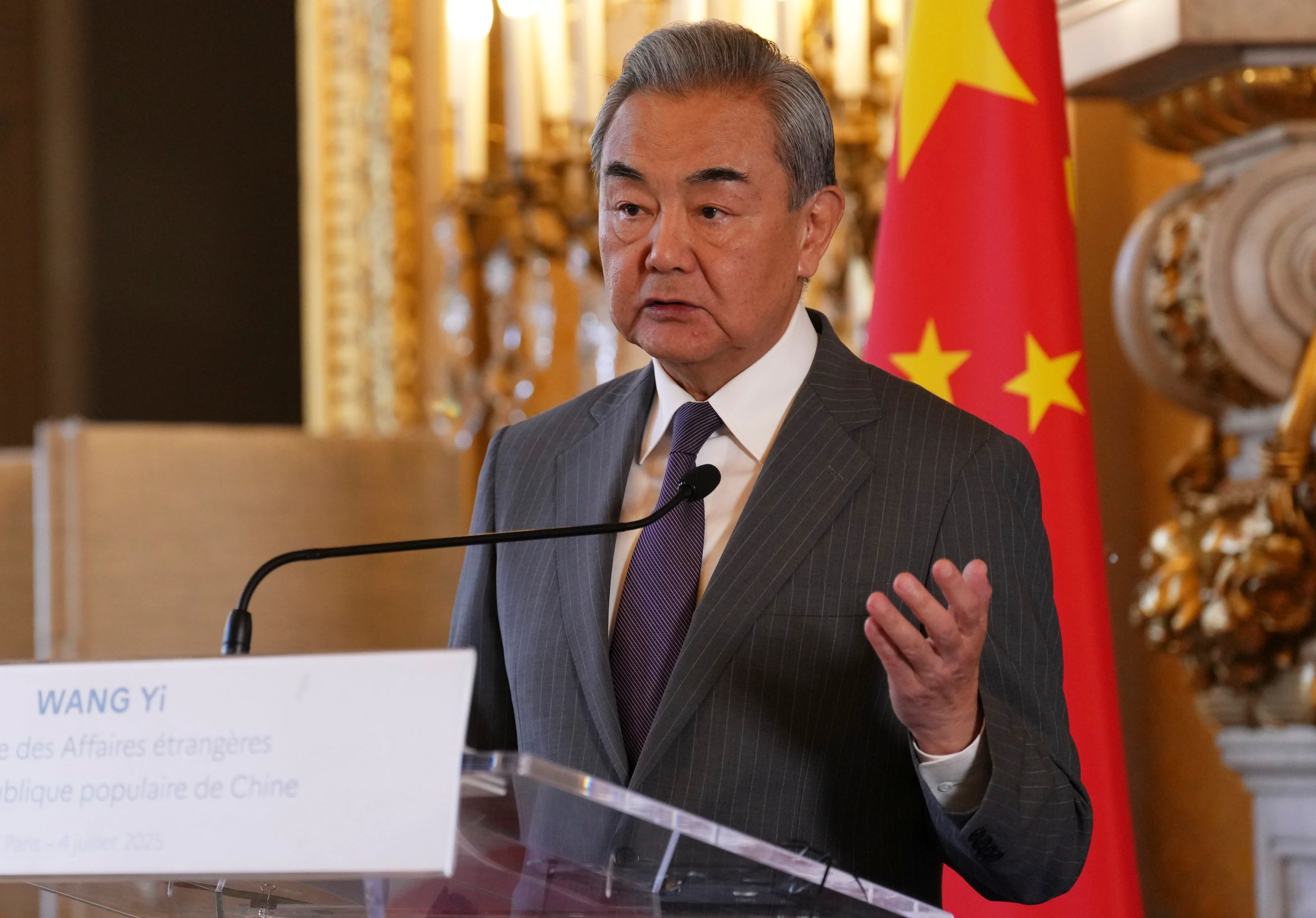By Shi Jiangtao
China’s top diplomat Wang Yi has called for a “new international agreement” on Iran while accusing the United States and Israel of destabilising the Middle East through military actions on Iranian nuclear facilities.
Speaking at a joint press conference with his French counterpart Jean-Noel Barrot in Paris on Friday, Wang also voiced deep concerns about escalating tensions in the region and warned of the looming spectre of a “nuclear disaster”.
His remarks came as Beijing, a key ally of an increasingly isolated Tehran, intensified its criticism of the US and Israel following last month’s pre-emptive strikes on Iranian personnel and nuclear facilities. China has also continued to style itself as a responsible power and key mediator.
Wang, currently on a European tour, reaffirmed that China valued Tehran’s repeated pledges not to develop nuclear weapons, while also respecting Iran’s right to the peaceful use of nuclear energy.
“On this basis, relevant parties should accelerate negotiations towards a new international agreement to resolve the Iranian nuclear issue, and place Iran’s nuclear activities fully under the strict supervision and safeguards of the International Atomic Energy Agency (IAEA),” he said without further elaboration, according to China’s foreign ministry.
“The road to peace lies beneath our feet, and history will judge each party’s sincerity.”
Wang stressed that the recent military conflict between Israel and Iran must not be repeated.
“War is not a solution to the Iranian nuclear issue and pre-emptive strikes clearly lack legitimacy, and the abuse of military force will only ignite wider conflict and deepen enmity,” he said.
He condemned the US for launching air strikes on the nuclear facilities of a sovereign nation, calling it a “bad precedent”.
“If such actions trigger a nuclear disaster, the entire world will bear the consequences,” he said.
Wang also pointedly rejected the notion of “peace through strength”, which underpinned the American and Israeli military approaches, as “power politics”.
“If strength alone determines right from wrong, where are the rules? Where is justice? Strength cannot bring true peace, and it may well open Pandora’s box,” he said.
“How can weaker nations, especially small and medium-sized countries, deal with themselves? Can they only be served on the table and slaughtered at will?”
China has consistently supported a political and diplomatic resolution to the Iran nuclear issue and sought to revive the 2015 Joint Comprehensive Plan of Action (JCPOA) since the US withdrew from the Iran nuclear deal in 2018.
While highly critical of US hegemony and “might makes right” logic, Beijing has over the years called for multilateral dialogue to maintain the JCPOA framework or seek a “mutually acceptable solution”, without explicitly suggesting a new Iran deal.
During a trip to the region in March, Wang put forward a five-point proposal for Middle East peace, which included resolving the Iran nuclear issue through dialogue and discussions on a “road map and timeline” to revive the JCPOA pact.
During Friday’s press conference, Wang also put the Iran issue in the broader Middle East context, including the Palestinian issue.
“A real resolution of the Iranian nuclear issue cannot avoid the core problem in the Middle East: the Palestinian question,” he said.
He reiterated China’s pro-Palestinian stance, stating that the humanitarian crisis in Gaza must not continue and that the two-state solution remained the only realistic path out of the Middle East’s turmoil.
In a message to France, which has stressed its strategic autonomy, Wang urged Paris to work with Beijing to “uphold justice, take responsibility, support resolving conflicts through dialogue and negotiation, and oppose any double standards”.
As a permanent member of the United Nations Security Council, France is a key signatory to the JCPOA, alongside China, Russia, Britain, the US, Germany and the European Union.
